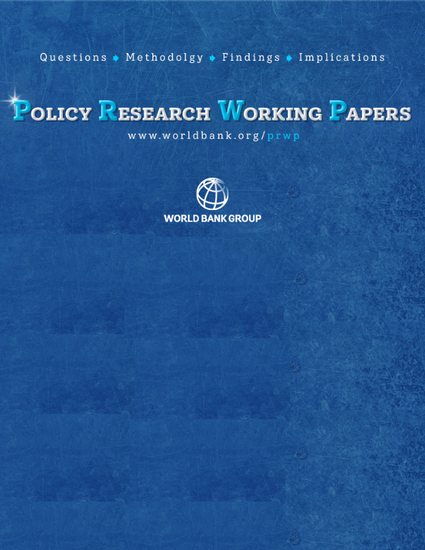
Unpublished Paper
Of Governance and Revenue: Participatory Institutions and Tax Compliance in Brazil
World Bank Group Policy Research Working Paper
(2019)
Abstract
Traditionally, governments seek to mobilize tax revenues by expanding their enforcement of existing tax regimes
and facilitating tax payments. However, enforcement and facilitation can be costly and produce diminishing marginal returns if citizens are unwilling to pay their taxes. This paper addresses gaps in knowledge about tax compliance, by asking a basic question: what explains why citizens and businesses comply with tax rules? To answer this question, the paper shows how the voluntary adoption of two different types of participatory governance institutions influences municipal tax collection in Brazil. Municipalities that voluntarily adopt participatory institutions collect significantly higher levels of taxes than similar municipalities without
these institutions. The paper provides evidence that moves scholarship on tax compliance beyond enforcement and facilitation paradigms, while offering a better assessment of the role of local democratic institutions for government performance and tax compliance.
Keywords
- municipalities,
- tax compliance,
- participatory institution,
- public services,
- quality of public,
- local tax regulation
Disciplines
Publication Date
March 28, 2019
Comments
Touchton, Michael Ryan; Wampler, Brian; Peixoto, Tiago Carneiro. 2019. Of Governance and Revenue : Participatory Institutions and Tax Compliance in Brazil (English). Policy Research working paper; no. WPS 8797. Washington, D.C. : World Bank Group. http://documents.worldbank.org/curated/en/855201553787807050/Of-Governance-and-Revenue-Participatory-Institutions-and-Tax-Compliance-in-Brazil
Citation Information
Mike Touchton, Brian Wampler and Tiago Peixoto. "Of Governance and Revenue: Participatory Institutions and Tax Compliance in Brazil" World Bank Group Policy Research Working Paper (2019) Available at: http://works.bepress.com/brian_wampler/61/
